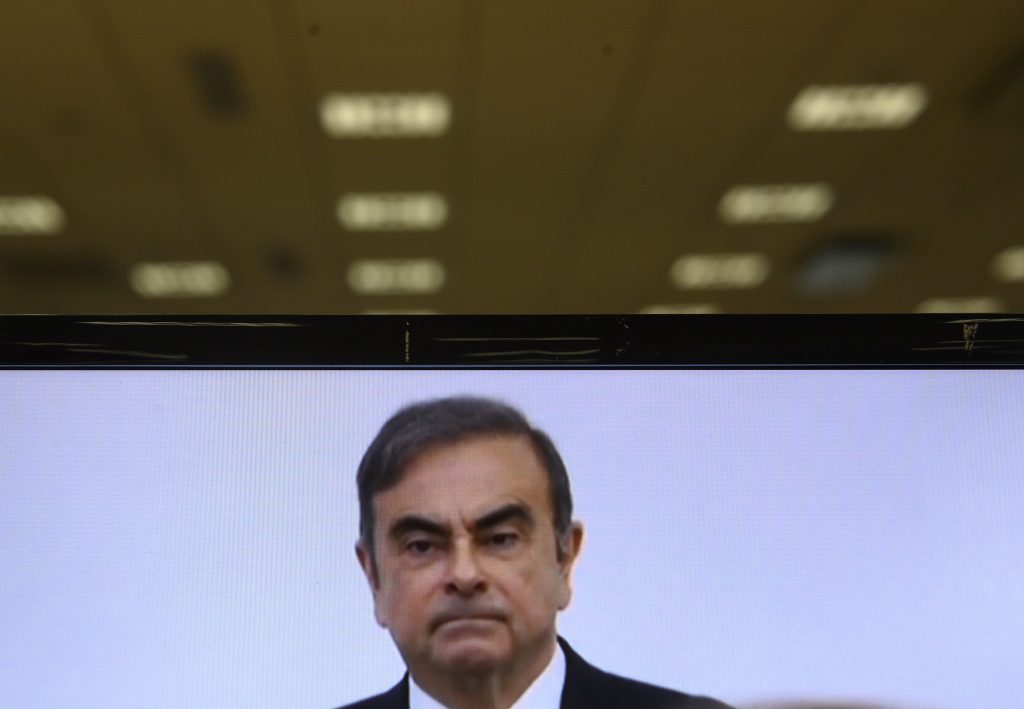
- ARAB NEWS
- 18 Jul 2025

Khaldon Azhari
TOKYO: The Japanese government has filed a protest against a UN working group’s report criticizing the arrest and detention of former Nissan Motor Co. Chairman Carlos Ghosn in the country, Justice Minister Yoko Kamikawa said Tuesday.
The report by the UN Human Rights Council’s Working Group on Arbitrary Detention was “extremely regrettable,” the minister told a press conference, arguing that it is solely based on the Ghosn side’s unilateral claims and contains factual errors.
“Our country’s criminal justice system guarantees basic human rights and allows the proper implementation of appropriate procedures,” Kamikawa said.
She denied that the criminal procedures taken against Ghosn amount to arbitrary detention.
On Monday, the Foreign Ministry in Tokyo issued a strong official rejection saying that the opinion of that UN group “is totally unacceptable, and is not legally binding, as it contains obvious factual errors.”
The statement noted that on Nov. 20, the government of Japan made an objection against the opinion adopted by the Working Group on Arbitrary Detention.
“As explained in the written response to the request for information by the Working Group, Japan’s criminal justice system sets out appropriate procedures and is administered properly to clarify the truth in criminal cases while guaranteeing the fundamental human rights of individuals concerned,” the foreign ministry said.
“In addition, detainees awaiting a judicial decision at institutions for detention receive treatments which respect their human rights. The criminal proceedings to be applied to defendant Ghosn do not violate the human rights treaties concluded by Japan, including the International Covenant on Civil and Political Rights (ICCPR).”
Such criminal proceedings were carried out strictly in accordance with appropriate procedures stipulated in relevant laws while fully guaranteeing the rights of defendant Ghosn, the statement explained emphasizing that the measures applied to defendant Ghosn cannot be considered as arbitrary detention.
Defendant Ghosn was released on bail by the decision of the Japanese court on conditions that he should not escape and hide and that he should not travel abroad. At the end of 2019, Ghosn, however, fled from both Japan and “his criminal” trial in violation of these conditions he promised to comply with.
Given that, the statement argued that it is accepted under any nation’s legal system that a suspect likely to destroy evidence and flee can be arrested and detained based on a warrant issued by the judicial authority.
Further argument by the Japanese foreign ministry said that flight from a criminal trial, in violation of the conditions a defendant promised to respect upon his or her release on bail, “is not condoned under any nation’s legal system.”
The statement added that under Japanese law, and in order to protect the rights of the people concerned in criminal proceedings, Japan cannot provide to the Working Group information related to investigations and trials concerning any cases, including that of defendant Ghosn, before commencement of a trial.
Japan said it explained such situation and pointed out that it would be inappropriate for the Working Group to make a decision regarding the case of defendant Ghosn, who had illegally fled, based on limited information and biased allegations from the source.
“Japan therefore deeply regrets that the Working Group continued to consider the case and rendered opinions based on limited information and biased allegations from the source, not based on accurate understanding on Japan’s criminal justice system.”
The Working Group has emphasized “that it expresses no view on the circumstances in which defendant Ghosn fled the jurisdiction of the Japanese authorities, and that its opinion should not be construed as condoning or offering any justification for such a departure.
However, the lengthy official statement by the foreign ministry argued that “defendant Ghosn was arrested and detained based on a warrant issued by the court because he was considered likely to destroy evidence and flee.
Defendant Ghosn then proceeded to actually flee the criminal trial itself. Given the situation, the very fact that the Working Group considers the case of defendant Ghosn as “arbitrary detention” would encourage those who would stand criminal trial to entertain the idea that flight can be justified and prevent the realization of justice and the proper functioning of the criminal justice system in each country.”
Japan said it will provide to the Working Group additional information to the extent possible under the Japanese legislation, and “correct the factual errors.”
*With JIJI Press